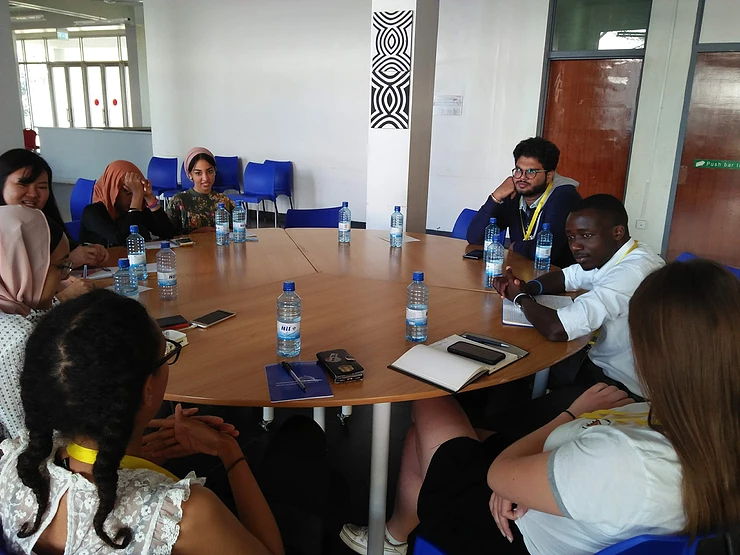During the 65th International Pharmaceutical Students’ Federation (IPSF) World Congress that took place from 31st July to 8th August in Kigali – Rwanda, our director Dr. Odhiambo David facilitated a workshop on 5th August 2019 in line with Ryculture Health and Social Innovation’s mission of championing health and social responsibility among the youth.
The workshop on Pharmacy Education and Practice Advocacy was designed to equip participants with advocacy skills to promote the profession of pharmacy with special focus on what professionalism in pharmacy practice entails. The participants shared experiences in their different countries which in all cases had shortfalls spanning irrational dispensing of medicines, poor control of sensitive drugs, lack of patient engagement in care by pharmacists i.e. pharmaceutical care lacking in the overall practice especially in hospital and community pharmacy practice. They also highlighted that the training of pharmacy in the different countries had shortfalls in that based on the priorities that existed when schools of pharmacy were being established have formed the basis of how training is conducted e.g. for Malaysia industrial practice was the mainstay and even training is more inclined to industrial pharmacy practice.
With the shortfalls highlighted, participants proposed solutions on how they felt these would be addressed which covered integration of values in pharmacy, fostering professionalism and adoption of competence based training of pharmacy to ensure that graduates are able to practice as expected of them. To influence these changes, policy interventions are needed from the regulatory bodies as well as the curriculum designers to ensure their curriculums conform to current standard practice requirements. However, to get buy-in for such a policy change they acknowledged the need to have the public experience the value of pharmacists in their midst. For this, they proposed that the pharmacists in practice should start by giving value to patients at the point of care. This would call for mobilization of all pharmacists in their practice settings to contribute to the change in practice as is needed for the good of the profession.
With a shift in practice there is need to communicate the value of pharmacists extensively and loud enough to attract the attention of different influential personalities. This could be done through social media considering we are the tech-savvy generation, mainstream media conversation which can include radio stations and television interviews & discussions, blogs, vlogs and editorials.

Participants pose for a picture after the workshop
With buy-in from the public achieved, the gained support can then be channeled to influence policy change especially under circumstances in which the policy makers are not as inclined to respond as required of them.
This approach was more inclined to activism however it was also acknowledged that activism is more likely to give positive outcomes when compared to diplomacy. It was resolved that alternative measures can be tried at different times based on prevailing circumstances but these should be strategic.
The overall schematic of advocacy was shared to encompass:
Problem identification –> Desire to change a situation —> Solution design —> Implementation
The workshop was structured to bring forth ideas with regard to existent solutions that participants felt they were facing in their respective countries, enable them propose solutions and guide them in developing an action plan on how they can change the whole system. This was marvelously done considering they proposed actions on what they could do by themselves as students for the good of the profession. These included practicing diligently, promotion health education through social media, advocating on social media and mobilizing other young people for their general well-being.

